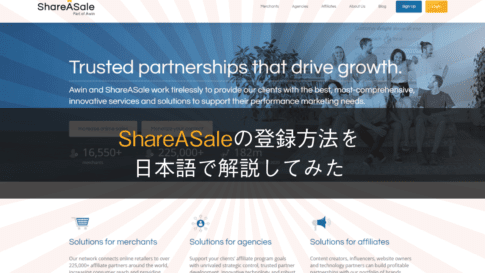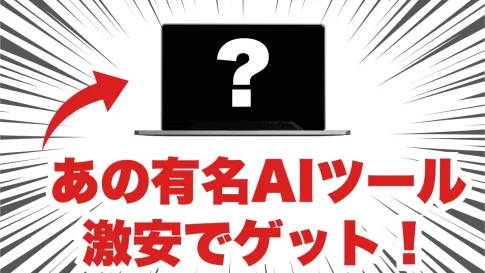Hello. I'm Takeo Fujii.
In this article, I would like to introduce three reasons why sales are not selling. Why is the product or service not selling?
If you break it down and think about it, a lot of people are not selling because of these three reasons.
A good product doesn't mean it will sell.
My product is pretty good."
I don't know why it doesn't sell. It's cheap, but it doesn't sell. In fact, it is not because it is a good product that it sells.
In the first place, it is unlikely that your product is superior to all the other products in the market.
Even if you think your product or service is unique, in reality there are competitors.
If you want to increase your sales more than they do, you can do so by making a few changes in this sales process. The cause is very simple.
[Conclusion] Three reasons why products do not sell
Here's a quick summary.
First of all, the reason why you can't make a sale is because
- You don't understand the product itself.
- You don't know your potential customers.
- You don't know what you are.
Because of these three causes, it's hard to sell products. No matter how good your product is, if you don't solve these three causes, you won't be able to sell it.
From here, I will discuss the causes in detail. Please read to the end.
If you have not been able to sell your products before, this article will help you sell them.
What I am going to talk about is only the obvious part. However, in many cases, they are not selling because they lack the obvious.
You can sell by creating the obvious. No other advanced techniques or tools are needed.
(1) You don't know the product.
You don't understand the product, or in other words, you don't understand "where the product needs are".
What problem does the product/service you are selling solve for the customer, or what does the customer get out of it?
When products are sold, when people want things, these are the two ways. As motivation.
- Because I want to solve something.
- Because I want to get something.
Either one of the two motivations, or both, will make the product sell.
If your products are not selling at all, or not selling a single one, then you are definitely not aware of your motives.
I want you to think about it... money is important.
Why money is important to most people
For many people, it takes an hour of part-time work to get a 1,000 yen bill. The money is the result of selling off time and effort through sweat.
Shopping is about getting something in exchange for giving up the money you have earned. That's why people are so cautious about paying for things.
I don't want to casually waste what I've spent part of my life to get.
- What can we solve?
- Can you get something for me?
So, to get people to pay for your product, think about which demand your product can appeal to.
(2) You don't know your potential customers.
Secondly. What kind of anxieties, pains, and worries do prospective customers have in the first place?
It starts with knowing the ecosystem of your prospective customers. What do they worry about in a day, and when do they get upset?
Let me give you a concrete example. Recently, I received a flyer in my mailbox about drain cleaning. When you have a clogged water pipe, you call a contractor, right? You call the contractor and say, "The water pipe is clogged, please come."
As you may know, there are a lot of rip-off companies. The flyer says that the problem can be solved for 1,000 yen, but when you actually call them and ask them to come, they will charge you 5,000 yen for the basic installation, plus another 50,000 yen for options.
Prospective customers who ask for drain cleaning are worried about these risks. They feel insecure because they know that there are a lot of bogus contractors out there.
I call them with a sense of anxiety. In this day and age, you can find a lot of information on the Internet about the vendor. So it's easy to pick up anxiety factors on the Internet.
In other words, you need to understand what kind of anxiety your prospects will feel in the process of applying.
You have to understand their fears better than they do.
First of all, we, as sellers, are aware of the concerns of potential customers.
If it's the drain cleaning company I used as an example above, prepare a hypothesis that "people might be worried that our company might be ripping them off" and advertise it in a way that eliminates that worry.
No extra charge" should be written on the flyer.
From the prospective customer's point of view, it's safe. There's no need to worry about additional fees or rip-offs.
3) You don't know yourself.
And the third one. Why can't I sell? The reason is that you don't know yourself.
In other words, it's a "role.
Why you are selling the product.
This is the role. What role will you play in selling the product? You need to be clear about this.
If you are in a selling role, you will dress, speak, posture, make eye contact, and brand yourself as appropriate for that role.
- No one but the salesman does.
- Recommended by experts.
Naturally, the products recommended by experts are more reliable. There are many similar products available in the market. There are also a lot of salesmen trying to sell you products.
Among them, why should I buy the products that you recommend? Yes, that's why I need a reason to buy from you.
The reason for creating this is to recognize your own role in the process.
What does it mean to play a role?
I also have a role to play. I have a role to play, and that role is to disseminate useful marketing information.
I make daily adjustments to my speech and posture to fit this role. I take videos, check them myself, and modify them to fit the role.

My clothes are also dressed like this according to my role. I dress in black and wear only loose clothing. This is for the purpose of looking geeky, nerdy, and a little underground.
Socially speaking, it's a sloppy outfit. Working people have an image of wearing a suit, right?
If my role was to propose lead generation services for BtoB, I would wear a suit. However, since my role is to provide services to sole proprietors and small business entrepreneurs, I wear this black, loose clothing.
Summary: If you eliminate the three causes, you can sell.
Now that you have an idea of what to expect, let's look back again. Let's look back again.
- You don't know the product.
- You don't know your potential customers.
- You don't know what you are.
Eliminating these three causes will make your product sell.
If you are starting or have just started up a business, address these three causes first.
That way, you can achieve one from zero. If this is not addressed early on, sales will not increase and it should become more difficult.
This is very important in any type of industry or business.
That's it for this time. I'll see you soon.







![What is Marketing Automation (MA)?: Benefits & Tools [2022] Marketing Automation](https://takeofujii.net/wp-content/uploads/2021/06/zero-auto.jpg)


![How to redeem/activate a purchase at AppSumo [Illustration]. A man wearing glasses and a black shirt with a smile on a red and white background. The text reads "AppSumo How to redeem goods", highlighting a clue about "how to redeem goods at AppSumo".](https://takeofujii.net/wp-content/uploads/2024/06/appsumo-redeem-485x273.png)




![Star Server's disadvantages exposed without hiding [honest...]. The image contains Japanese text that reads, "Sorry, Star Server.](https://takeofujii.net/wp-content/uploads/2024/09/starserver-gomen-485x303.png)



Latest Comments